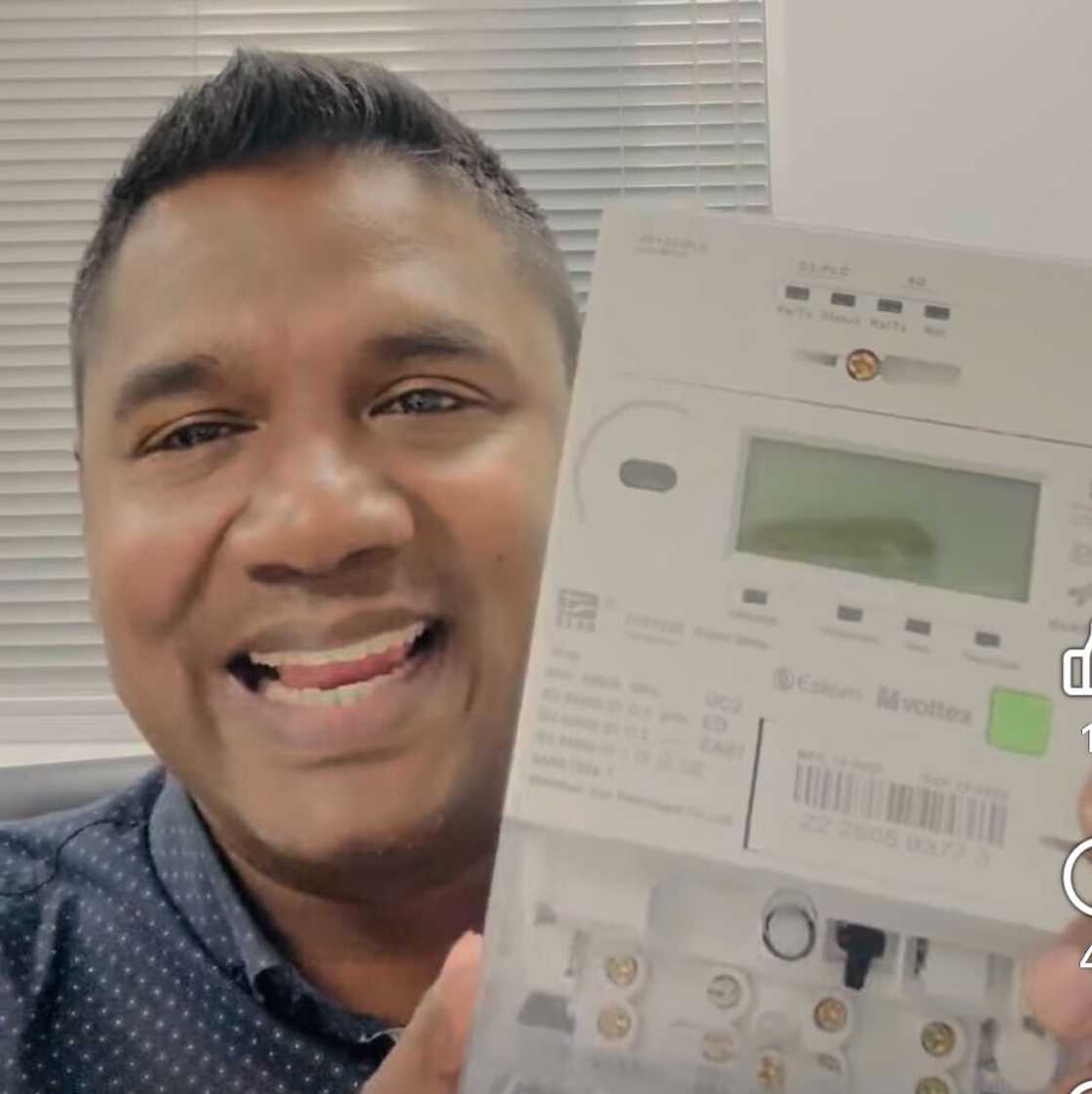"Daylight Robbery": SA Reacts as Man Breaks Down Why Electricity Units Differ Monthly
- A South African man shared a video explaining why electricity units seem to fluctuate every month, despite consistent spending
- He cited fixed monthly charges, stepped and block tariffs, and time-of-use tariffs as key factors contributing to the fluctuations
- The video sparked a lively discussion online, with many people praising the gent for shedding light on the issue and others sharing their frustrations with the cost of electricity in South Africa
A South African man has gone viral after posting a detailed video explaining why electricity units seem to fluctuate every month, even when people spend the same amount of money.

Source: TikTok
In the clip that he posted on his Facebook account, under the handle Wes Reddy, he began by saying the following:
"Every time you buy electricity tokens, does it feel like you’re getting a different amount of units? Here are the top three reasons why this happens."
The man explained that the first reason lies in fixed monthly charges such as management fees and network costs. The first electricity purchase of the month is a charge that gets deducted upfront.
PAY ATTENTION: Briefly News is now on YouTube! Check out our interviews on Briefly TV Life now!
What gets left is then used to buy the actual units, which is why the amount an individual receives may appear smaller.
The second reason he shared is due to stepped and block tariffs. Wes Reddy explained that consumers who use less than 500 kWh per month are charged at a lower rate. However, once that threshold is exceeded, the tariff rate increases, meaning that you pay more for fewer units.
The third factor he mentioned is time-of-use tariffs, which apply in certain areas.
"If you use more power during off-peak hours, you’ll get more units for your money. But if you use electricity during peak hours, your usage costs more, and you end up with fewer units," he clarified in the video that he uploaded on 23 October 2025 on Facebook.
He added that VAT charges also play a role, noting that roughly 15% of the amount paid goes to VAT before units are calculated.

Read also
R20,000 wedding ring has gent rethinking marriage, South Africans weigh in: "Is diabolical"
The social media user Wes Reddy's video gained massive traction on the internet, with many people praising him for educating them on the topic.

Source: Facebook
SA weighs in on the electricity issue in Mzansi
The online community of Mzansi took to the comments section to express their thoughts on the cost of electricity in South Africa.
Victor Maxim said:
"Daylight robbery, that is what it is."
Lance Avontuur asked:
"When are the off-peak and peak times?"
Ricky Brink added:
"It seems like we're being discriminated against."
Russel John Sellick shared:
"Well I get 350 kwh at the first part of the month not 500!"
Akbar Khan expressed:
"It's simple if buying for R100.00 for 40 units. In the 1st week, why must it change 2nd or 3rd...it's just theft."
Watch the video below:
More stories on electricity by Briefly News
- A South African man has taken to social media to break down how prepaid metering systems work, offering clarity to tenants, landlords, and homeowners alike.
- A South African man has broken down the cost of running a Wi-Fi router for an entire month, and the numbers have sparked interest online.
- A South African man has sparked conversation online after breaking down the cost of using an electric blanket, showing just how affordable it can be to stay warm during winter.
Source: Briefly News


